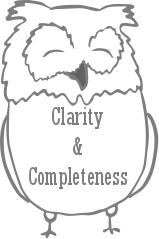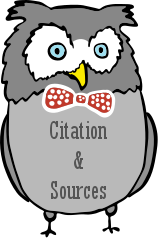In 2013, Brandon Stanton began wandering around New York City, taking people’s portraits on his camera and sharing their stories on the Internet (Stanton, n.d.). Brandon asked questions about people’s everyday lives, their struggles, and their dreams. Within months, Humans of New York (HONY) became an internet sensation. People from all corners of the world began following Mr. Stanton, and commented on the shared experiences of those individuals that Brandon highlighted. People lent kind words of encouragement and shared their own frustrations and struggles, forging communities of support in the comments section of a Facebook post. As the project grew exponentially, people even began lending financial support to the individuals Brandon photographed who were enduring hardship. How can we explain this phenomenon? What is the intrinsic behavior behind individuals reading random stories on the internet, and compassionately contributing to the lives and futures of complete strangers? What compels human beings to express their generosity and sense of empathy with those in need? Is this ability to empathize, this tendency toward altruistic behavior something we as human beings learn, or are we born with it?
Pro-social behavior can be found everywhere among humans. Nevertheless, this behavior remains as an evolutionary puzzle. In most animal species, cooperative behavior is only seen among kin or in very small groups (Capraro & Cococcioni, 2015). This is thought to be because interactions among kin or small groups are likely to be repeated. In humans however, this cooperative behavior is often found between complete strangers. A young healthy person might vacate a seat on a crowded train to let an elderly person sit down. A person might help a pregnant woman carry her newly bought groceries up a flight of stairs. Humans are even willing to give resources to charity such as food, clothing, furniture, money, or even contribute anonymously through the internet, as witnessed in the tremendous financial campaigns by HONY. Are these different behaviors learned or innate? I believe cooperation to be innate. Nevertheless the degree to which this cooperation expands or shrinks seems to be dictated by the individual’s context, environment, and experience. Using two experiments and several references, I will support this perspective.
When the question of whether cooperation is innate or learned in life rises, I think it is imperative to examine the behavior of children at several different stages of their lives. A form of cooperation from a societal point of view is known as altruism. In a study conducted in 2007 by Benenson et al. (Benenson, Pascoe, & Radmore, 2007), several children played a version of the “dictator game”. The dictator game is simply a game with two participants, where one participant is given resources and the option to share them as he/she wishes with the other participant. The other person has no say in the transaction. Benenson’s version of the dictator game was conducted with 4, 6, and 9 year-olds from two different schools. One school belonged to a high socioeconomic status (SES) and the other belonged to a lower socioeconomic status. In total, there were 360 kids, with 30 boys and 30 girls at each grade level within each level of SES. Each child was brought individually to an empty room. The interviewer would then inform the child that she (all interviewers were female) had some stickers for him/her. Then she would empty a bag with 30 stickers on the table. The child was then told to pick the 10 that he liked best. The interviewer would then emphasize that those were his stickers and that he did not have to give them away if he did not want to. Finally the interviewer would ask the child if he wanted to donate some of those stickers to the other kids who were not lucky enough to participate in the experiment. The child was given an envelope that was then sealed to further strengthen the anonymity of the transaction.
The results of the experiment show that even at a young age, the children behaved altruistically. Furthermore, the level of altruism increased with age. 9-year-olds donated significantly more stickers than 4-year-olds. 6-year-olds donated an intermediate amount of stickers without it being significantly different from 4-year-olds or 9-year-olds. Furthermore, children from higher SES donated significantly more stickers than children from lower SES. Interestingly, after looking at the Age level x SES interaction, the difference between SESs can be attributed purely to the 9-year-olds from a high SES who donated significantly more than the rest. The results so far tend to show that as children grow up, they tend to donate more stickers on average. Nevertheless, the results also show that as they grow, the amount of children donating the majority of his/her stickers also diminishes. In other words, the number of children who donated 8 – 10 stickers decreased significantly with age. Again, this effect was stronger for children from a high SES. “This suggests that children from higher SES increasingly learn social norms that prescribe directing altruistic behavior to anonymous others.” (Benenson et al., 2007). In summary, this study indicates an early basis for altruism which increases with age, particularly for those belonging to more privileged environments. This also indicates that we are born with an altruistic behavior, but as we grow, we calibrate it to societal standards, or what we perceive as “fair”. The standards and definition of fairness might change depending upon the context in which someone exists.
Why do children from a low socioeconomic status display lower levels of altruism? There are several theories to explain this behavior. Poverty is linked with differences in socialization practices such as less interaction with unfamiliar adults, fewer supportive relationships with parents, higher levels of violence, greater familial disruption, less parental monitoring, more unresponsive, harsher, and less consistent relationships with parents, more aggressive peers, less stable relationships at school, and more reliance on peers than on parents. Individuals that live in poverty “have weaker social ties, experience less interpersonal trust and norms of reciprocity, and perceive lower levels of instrumental support and mutual aid” (Evans, 2004). All these variables might hinder the development of a cooperative behavior in children from a lower SES. In order to say with certainty that low SES causes less cooperation, causality models and further research is still needed.
Check out Part 2!
References:
- Amazon Mechanical Turk. (n.d.). Retrieved April 24, 2018, from https://www.mturk.com/
- Benenson, J. F., Pascoe, J., & Radmore, N. (2007). Children’s altruistic behavior in the dictator game. Evolution and Human Behavior, 28(3), 168–175. https://doi.org/10.1016/j.evolhumbehav.2006.10.003
- Capraro, V., & Cococcioni, G. (2015). Social setting, intuition and experience in laboratory experiments interact to shape cooperative decision-making: Figure 1. Proceedings of the Royal Society B: Biological Sciences, 282(1811), 20150237. https://doi.org/10.1098/rspb.2015.0237
- Capraro, V., Jordan, J. J., & Rand, D. G. (2015). Heuristics guide the implementation of social preferences in one-shot Prisoner’s Dilemma experiments. Scientific Reports, 4(1). https://doi.org/10.1038/srep06790
- Evans, G. W. (2004). The Environment of Childhood Poverty. American Psychologist, 59(2), 77–92. https://doi.org/10.1037/0003-066X.59.2.77
- Hammerstein, P. (2003). Genetic and Cultural Evolution of Cooperation. Cambridge MA: MIT Press. Retrieved from https://mitpress.mit.edu/books/genetic-and-cultural-evolution-cooperation
- Henrich, J., Ensminger, J., McElreath, R., Barr, A., Barrett, C., Bolyanatz, A., … Ziker, J. (2010). Markets, Religion, Community Size, and the Evolution of Fairness and Punishment. Science, 327(5972), 1480–1484. https://doi.org/10.1126/science.1182238
- Miklian, J., & Carney, S. (2013). Corruption, Justice and Violence in Democratic India. SAIS Review, 33(1), 37–49. https://doi.org/10.1353/sais.2013.0011
- Quah, J. S. T. (2008). Curbing Corruption in India: An Impossible Dream? Asian Journal of Political Science, 16(3), 240–259. https://doi.org/10.1080/02185370802504266
- Raihani, N. J., & Bshary, R. (2015). Why humans might help strangers. Frontiers in Behavioral Neuroscience, 9. https://doi.org/10.3389/fnbeh.2015.00039
- Rand, D. G., Peysakhovich, A., Kraft-Todd, G. T., Newman, G. E., Wurzbacher, O., Nowak, M. A., & Greene, J. D. (2014). Social heuristics shape intuitive cooperation. Nature Communications, 5. https://doi.org/10.1038/ncomms4677
- Ross, J., Irani, L., Silberman, M. S., Zaldivar, A., & Tomlinson, B. (2010). Who are the crowdworkers?: shifting demographics in mechanical turk (p. 2863). ACM Press. https://doi.org/10.1145/1753846.1753873
- Stanton, B. (n.d.). Humans of New York. Retrieved April 24, 2018, from http://www.humansofnewyork.com/about
- von Stumm, S., & Plomin, R. (2015). Socioeconomic status and the growth of intelligence from infancy through adolescence. Intelligence, 30–36.
- Zak, P. J. (2013). The Moral Molecule: How Trust Works. Plume.
Best,

Content type: long, popular





Awarded 4.5 out of 6 owls:
Details: The originality owl was not awarded since it requires the content to be explained in a creative/novel way. Half a layout and text formatting was not awarded since it could use some subsections.
Downvoting a post can decrease pending rewards and make it less visible. Common reasons:
Submit
The grind to obtain the owls...
Downvoting a post can decrease pending rewards and make it less visible. Common reasons:
Submit
I always read your posts because I always learn something. Good blog. I wonder if some of the effects on altruism are from the perceived value of stickers. A few stickers are something of value to a young lower socioeconomic status child. I wonder if that value is perceived the same as the child gets older or if the child is from a higher socioeconomic status? Maybe kids give away more stickers when they are perceived to be of less value? Just thinking out loud...
Downvoting a post can decrease pending rewards and make it less visible. Common reasons:
Submit
Indeed, depending on the socioeconomic status of a child, the perceived value of a sticker might change. The experimenters made sure that the stickers represented an asset with same scarcity in both higher and lower SES schools. In other words, stickers were equally commonly given to students in both schools. Furthermore, this stickers were brought from another country therefore, they would be equally rare for all children. With these two conditions, the experimenters tried to control for the perceived value of the stickers.
Downvoting a post can decrease pending rewards and make it less visible. Common reasons:
Submit
I always believed corporation is innate. Looking at the experiment with the stickers, I would say, that my belief has been proved. I for one believe that no human wants to see others suffer, hence the innate corporation. Thanks for this post. I'm sure going to go study more about it.
Downvoting a post can decrease pending rewards and make it less visible. Common reasons:
Submit
I also believe there is an innate factor in cooperation. Nevertheless, I also believe that the degree of cooperation is shaped by experience. Make sure to check out Part 2 of the essay!
Downvoting a post can decrease pending rewards and make it less visible. Common reasons:
Submit
I definitely would
Downvoting a post can decrease pending rewards and make it less visible. Common reasons:
Submit
You got a 20.50% upvote from @emperorofnaps courtesy of @capatazche!
Want to promote your posts too? Send 0.05+ SBD or STEEM to @emperorofnaps to receive a share of a full upvote every 2.4 hours...Then go relax and take a nap!
Downvoting a post can decrease pending rewards and make it less visible. Common reasons:
Submit
You just planted 0.27 tree(s)!
Thanks to @capatazche
We have planted already 5212.84 trees
out of 1,000,000
Let's save and restore Abongphen Highland Forest
in Cameroonian village Kedjom-Keku!
Plant trees with @treeplanter and get paid for it!
My Steem Power = 25255.35
Thanks a lot!
@martin.mikes coordinator of @kedjom-keku
Downvoting a post can decrease pending rewards and make it less visible. Common reasons:
Submit